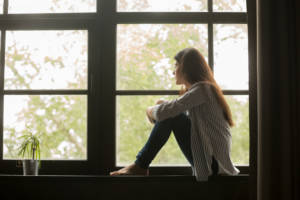Evaluating the Safety Risks of Outdoor Activities During COVID-19
With COVID-19 still devastating many communities, but summer time upon us, many people are wondering how and when to engage in outdoor activities.
Conflicting news reports and uninformed political leaders have led to widespread confusion when it comes to safety and preparedness during the COVID-19 pandemic. Though much is still unknown about the novel coronavirus, organizations like WHO and the CDC have been trying to offer as much information as possible on how people should be responding to this crisis. Unfortunately, the longer some people have been stuck indoors, the stronger the urge becomes to get out and interact with the world again. To avoid a resurgence in numbers, it is vital that people everywhere avoid rushing into anything uncertain, and take extra precautions when engaging in outdoor activities.
If you’re losing your mind indoors with your partner or family, you might be curious about what is actually safe. Consider these points and make a decision that will help to keep your family protected without accidentally adding to the rising number of cases.
When To Stay on Your Property
How you should be responding to the pandemic comes back to where you live. Those living in rural areas where residences and businesses are spread out might not need to be as cautious as those who reside in bustling cities or even packed suburbs. This should inform how far you go with your family and how you engage in outdoor activities. Going to a park in your neighborhood once your state allows it might be legal, but a crowded park is a crowded park.
As tempting as it might be to go to a local park or public spot, it is definitely much wiser to refrain from these activities until you start seeing hard data that case numbers are in control. Stay on your property when you need fresh air and sunshine. If you live in a city, take a walk around your block while wearing a mask and whatever other gear is required. It might be difficult, but taking these steps now helps to increase the odds of everyone being able to enjoy outdoor activities sooner rather than later.
When To Venture Out
In America, states are rolling out plans for reopening at wildly different paces. With many politicians and economic stakeholders concerned about losing capital, public health is being sacrificed in the rush to open businesses again. This hastiness is causing even more confusion about whether or not it is actually safe to go out and about. According to all major health organizations, the pandemic is in no way contained and reopening can easily lead to more complicated problems at a faster pace. If you’re concerned about your state’s decision to open, try to refrain from going out even though you’re allowed.
The politicization of the novel coronavirus has caused a serious disruption of fact-based information from informing the decisions of average citizens. To weed through the noise and know when it is safe for you to go out for more than essentials, you need to get your information from health organizations and sources that are not affiliated with major media. Though the news is trustworthy to a degree, media conglomerates will often publish material with a political slant for more internet views. Avoid sensationalist clickbait to cut to the heart of the situation and develop an informed perspective.
Why You Need To Stay Informed
Though being obsessed with news surrounding the pandemic can be quite unhealthy, you also need to keep yourself informed on developments. Until you know it is safe to resume your usual outdoor activities, limit your excursions. Places like gyms might be sorely missed by patrons, but you can easily exercise at home until the coast is clear.
Information surrounding the novel coronavirus might change on an hourly basis, but making any decisions without consulting current data can be irresponsible. While you might be eager to lazily hang in the park with friends, showing a bit of reservation will definitely yield better results for all.
Taking Extra Care of Your Family Pets During Quarantine
Read through these suggestions for making the most of the COVID-19 lockdown with your pets and making sure they get the love they deserve.
The COVID-19 pandemic might be taxing on human beings, but it is a unique situation for the furry members of the family as well. Cats and dogs are experiencing an unprecedented period of time during which owners are home all hours, which can bring about a mixture of excitement and confusion. Though you’re likely showing a bit of extra love and affection to your pets lately, there are specific ways you can encourage a calm, relaxed attitude when things are tense. Consider these tips and learn how you can best take care of your pets during lockdown.
Pets with a Ton of Energy
Is your dog running around the house more than usual? Have you noticed that the pup is more demanding of your attention throughout the day? Most of the time, dogs are conditioned to be chill during the day when owners are at work or taking care of errands. This is evident in the bursts of energy that a dog has when the family returns to the house. Of course, this is no longer the case for most households. With the family constantly present, a dog might not know how to react and need to suddenly work through these emotions.
While the simple solution to an overactive pup is a walk, you’re definitely not going to be able to keep up with the demands your dog is placing on you during this time. Instead, try to dedicate small chunks of time to play whenever possible. Helping your dog work through its excitement in a healthy, controlled way can limit the odds of the habit persisting throughout the entire lockdown.
A Cat With a Message
Cats are fickle creatures with seriously vindictive personality traits. If you offend a cat in a specific way, you can expect feline retribution. What’s worse, you might not realize what you did wrong. Since most cats are solitary ambush predators that don’t enjoy being in a crowd all day, your constant presence in the house might be seen as an affront. This can manifest in many ways, including a kitty who decides to forego the litter box in order to send you a specific message. Missing the litter box on purpose is a sign your cat is literally pissed.
Since you can’t talk this problem out with your cat and you can’t leave the house the way you usually would, you need to get creative with your approach. In most cases, the cat will decide to pee on items of personal significance to you. This can be shoes, a piece of clothing, or even furniture. To curb the habit, invest in a spray meant to deter cats from this action. When your cat gets a whiff of the spray, it will likely stop showing its frustration in this way.
The Loneliness Is Real
People need other people. Science shows that physical contact and emotional connection play an integral part in a person’s overall health. What most people don’t realize is that the same can be true for pets. Dogs in particular become accustomed to receiving attention from other humans during walks and outings. When this comes to a halt due to social distancing measures, the dog might feel or act depressed from this lack of contact. Showing your pup some extra love during moments when he or she seems bummed can help to distract from whatever lethargic feelings have come about.
While cats and dogs might be loving the added hours with the family, there are bound to be some bumps along the way. When you notice a peculiar habit developing with your pet, address the issue and come up with a sensible solution. Showing this level of love and attention to your furry pals can be a good way to make this difficult time easier on even the smallest members of your group.
The Value of Solitude in the COVID-19 Age
Solitude can present a unique opportunity for spiritual, mental, and emotional growth, and what better time to experience it than during a pandemic.
Humans find a lot of value in community, especially sharing spiritual experiences with others. Nearly every major religion integrates communal fellowship into its traditions. However, they also stress the need for solitude in deepening one’s spiritual life. With the coronavirus pandemic forcing billions of people to stay inside their homes, the potential for solitude is at an all-time high. If effectively harnessed, it can present a unique opportunity for spiritual, mental, and emotional growth.
Examples of Solitude From World Religions
For those seeking spiritual enrichment in solitude, plenty of examples exist. The Tanakh mentions Moses, Elijah, and Jacob meeting alone with God. In Islam, Muhammad’s first revelation occurred when he was alone in the cave of Hira just outside of Mecca. The Bible’s New Testament describes Jesus frequently going into the wilderness by himself to pray.
There are more examples outside of the major Abrahamic religions. Buddha is said to have meditated under the Bodhi tree for several weeks. Guru Nanak, the founder of the Sikh faith, said that “he who meditates in solitude attains supreme bliss.” Some Neopagans embrace solitary practice instead of joining covens or other groups. Patti Washington, a historian and pagan high priestess, explains that some Wiccans don’t live near any covens and others benefit from setting their own pace and avoiding covens’ interpersonal dynamics.
Why We May Avoid Solitude
In a piece for The Atlantic, journalist Brent Crane observes that most humans try their best to avoid solitude. “It has been considered an inconvenience, something to avoid, a punishment, a realm of loners,” he comments. Humans are social beings, thanks to thousands of years of evolution. Recognizing strength, safety, and better survival odds in numbers, our earliest ancestors lived in small tribes containing several families. Without the protection of a larger group, social outcasts would have been more likely to die from animal attacks, lack of shelter, or starvation.
It’s easy to conflate solitude with loneliness, especially when solitude isn’t deliberately chosen. For some, their busy schedules make it impossible to savor a few quiet moments alone. Others try to avoid their chaotic inner lives: minds filled with anxiety, regret, fear, worry, or other things that make them uncomfortable. Whether it’s a throwback to ancestral fears is uncertain, but being alone can be a significant source of stress.
An Opportunity for Growth
Indeed, too much isolation can harm our physical and mental health. In small doses, however, it can be beneficial. Vox’s Sigal Samuel describes it as a skill. “Lean into it,” she advises, then draws examples from people who’ve dealt with involuntary isolation. “You have to learn how to deal with yourself,” says Keith Lamar, an American man who has spent 27 years in solitary confinement. Professor and researcher Matthew Bowker adds that making the most of being alone can “generate meaningful and valuable experiences in the internal world.”
Being plunged into social isolation while sheltering in place isn’t easy. Recognizing our discomfort is key: Observing and sitting with the emotion is vital, but it’s important to stay detached. Emotions bring with them sensations, and those sensations can and do pass.
Reconnecting with our internal world during periods of solitude is beneficial, but experts warn against completely disconnecting from outside reality. Sensory awareness and grounding techniques are useful for combating anxiety. Keeping track of something in our outside environment can also help ground us, such as rainfall, temperatures, or the birds outside our windows. Routines also help us stay connected and provide structure to our days.
Remembering Purpose in Your Solitude
People all over the world are struggling with pandemic-related isolation. Rather than running from solitude, learning to embrace it can improve our lives. Balancing time spent alone with engaging in technology is a useful strategy to process our discomfort, find relief when we need it, and remain connected with those who matter to us most.
Could the Coronavirus Affect Your Wedding? A Brief Situational Analysis
The rapid spread of the coronavirus is impacting many couples’ wedding plans, so take these issues into consideration and remain flexible.
As of March 30th, CNN reported over 700,000 coronavirus cases worldwide. Global News reveals there are over 7,000 confirmed cases in Canada, with 1,700 in Ontario and just under 1,000 in British Columbia. While governments all over the world decide how to handle the coronavirus outbreak, many people are concerned about how it affects their everyday lives. With summer and fall weddings just on the horizon, what could this epidemic mean for Canadian couples about to tie the knot?
Plan Extra Time for Your Wedding Attire
If you’ve already selected your attire, it doesn’t hurt to have a backup plan. IBISWorld estimates that China’s apparel manufacturing industry generated $390 billion in 2019, but CNN’s Parija Kavilanz mentions that many production facilities have closed because of the outbreak. Around 80% of the world’s wedding gowns and formal dresses are made in China, along with a large percentage of suits, tuxedos, and other formal apparel. With some clothing retailers already facing a month delay in receiving new shipments, that could leave many nearlyweds and their attendants scrambling to find new attire.
Coronavirus Causing Food and Drink Shortages
The coronavirus pandemic impacts other parts of the global supply change, including food and beverage production. ABC News’ Kelly McCarthy details these disruptions, including factory closures, employee travel bans, and increased food quality control measures in the United States. How these actions could impact your reception food and drink remain to be seen, but it’s a good idea to talk to your caterer about your concerns and develop backup plans in case your first choices aren’t available.
Travel and Lodging Issues
The Centers for Disease Control and Prevention lists dozens of countries with confirmed coronavirus cases. Some of the hardest-hit nations include China, Italy, Spain, Germany, Iran and the United States. Every European nation has reported cases, along with countries that are popular tourist destinations such as Mexico, the Dominican Republic, Australia, and Indonesia.
In the wake of the outbreak, the tourism and hospitality industries are feeling the effects. Hospitality Net columnist Ahmed Mahmoud mentions losses by several major chains such as Hilton, Wyndham, Hyatt, and Radisson. Major airlines have stricken many routes from their offerings and are operating at reduced capacity, severely reducing their revenue.
Naturally, you’ll want to keep a close eye on the news if your honeymoon location is in one of the affected areas and planned for the near future. Follow government-issued travel advisories and be prepared to cancel and adjust plans. If you’re using a travel agent, work with that professional to choose alternative destinations and itineraries. Keep in touch with your vendors and venues to remain updated about any impacts the outbreak has on your big day. Many countries and locales are issuing stay-at-home orders at this point, and many of those continue to be extended. Social distancing guidelines now extend at least through April 30th in the U.S.
Wedding Insurance Issues To Consider
With the outbreak threatening many industries, you’re probably tempted to buy wedding insurance if you don’t have it already. That’s a smart idea, but you need to know what you’re getting for your money. The Balance’s Mila Araujo lists typically covered losses such as venue closings, illnesses, and damage or lost attire. Some policies may not cover weddings outside of Canada, so confirm what your policy includes before you finalize your purchase.
As human beings, we tend to take many things for granted. However, the coronavirus epidemic is a serious reminder about the fragility of life and how much uncertainty is involved in our daily lives. Staying aware and considering alternative plans are both important as you arrange your wedding. In the meantime, don’t forget to take good care of yourself. With smart precautions such as washing your hands, avoiding people who are sick, coughing or sneezing into your sleeve, and staying home if you are ill, you’ll hopefully protect yourself and those around you. In fact, you should probably stay home except for essential errands even if you are well in order to “flatten the curve.”






